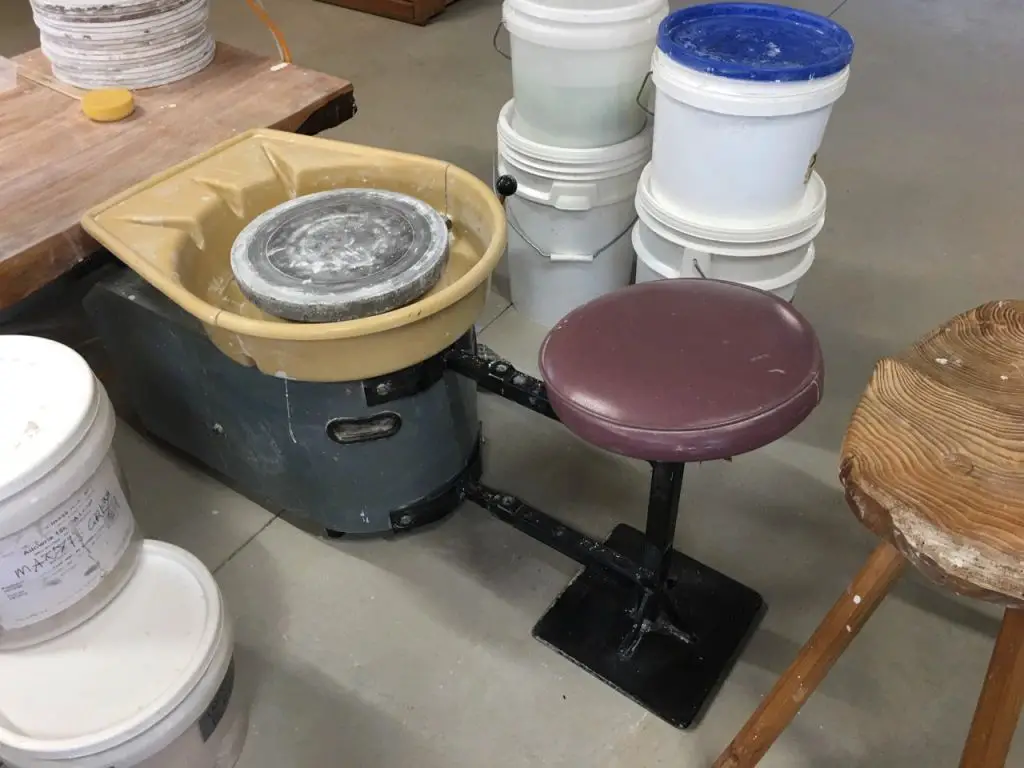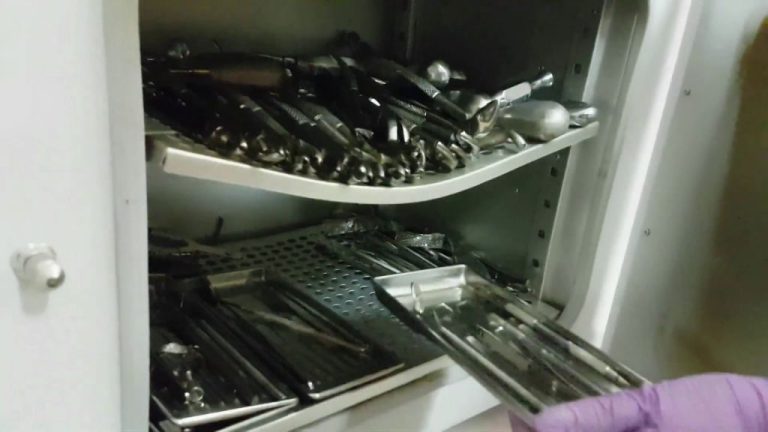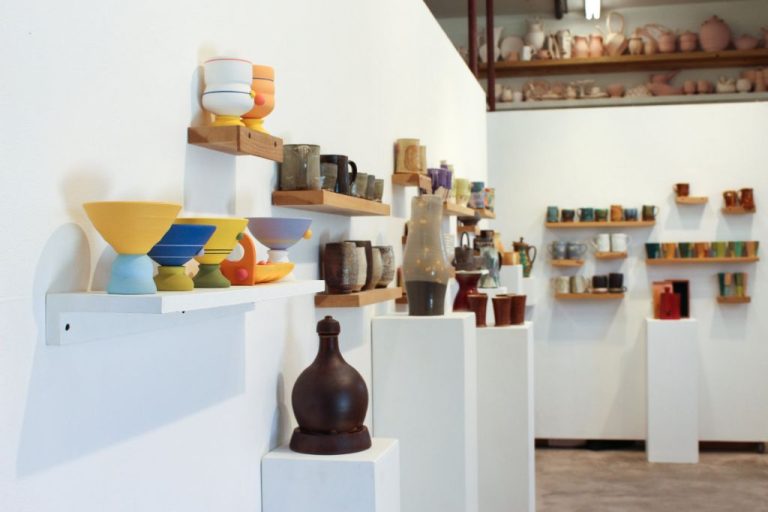Where Are Shimpo Pottery Wheels Made?
Introducing Shimpo Pottery Wheels
Shimpo is a well-known and respected manufacturer of pottery wheels and ceramics equipment. The company has over 70 years of experience producing high-quality pottery wheels for professional artists, students, and hobbyists.
Shimpo was founded in 1952 in Kyoto, Japan and originally produced the “Ringcone,” which was the world’s first mechanical variable speed pottery wheel drive https://www2.nidec-shimpo.com/history/. Since then, Shimpo has continued to innovate and produce pottery wheels with advanced technology and reliability.
Shimpo pottery wheels are popular choices among ceramic artists and potters. Key features such as whisper-quiet operation, forward and reverse wheel rotation, and responsive speed control have made Shimpo a trusted brand. Many art schools and professional ceramic studios use Shimpo wheels due to their consistent performance and durability.
With a range of models for different experience levels and budgets, Shimpo pottery wheels accommodate everyone from beginners to experts. Their reputation for quality and innovation has made them a leading global brand for pottery wheels.
Shimpo Headquarters in Japan
The global headquarters for Shimpo is located in Kyoto, Japan, where the company was founded in 1952 (“History – NIDEC-SHIMPO AMERICA CORPORATION,” https://www2.nidec-shimpo.com/history/). Originally named Shimpo Industrial Corporation, the company started as a small machine shop before expanding its manufacturing facilities in Kyoto through the 1960s as sales grew (https://www2.nidec-shimpo.com/history/). Today, Shimpo’s headquarters remains in Kyoto, serving as the hub for product design, development and corporate operations.
As an expert in pottery equipment manufacturing for over 70 years, Shimpo has cemented itself as a leader in the ceramic arts industry. The company’s longevity and consistent quality is a testament to its Japanese roots, where meticulous engineering and craftsmanship is integral to operations.
Manufacturing Facilities Around the World
Shimpo has manufacturing and distribution facilities located across the globe, with major production centers in Asia.
The main Shimpo production facility is located in Ningbo, China and opened in 2004. This 200,000 square foot state-of-the-art facility produces Shimpo’s full line of pottery wheels, slab rollers, extruders and pugmills (1).
Shimpo also operates a manufacturing and distribution facility in Subang Jaya, Malaysia which produces pottery wheels for the Asian market (2).
In addition to China and Malaysia, Shimpo has a sales office and showroom located in the Netherlands to serve the European market (3).
While the majority of manufacturing takes place in Asia, Shimpo does operate a facility in Glendale, California where select products are assembled from parts produced globally (4).
Sources:
(1) https://www.shimpoceramics.com/about-us/
(2) https://en.wikipedia.org/wiki/Nidec-Shimpo_America_Corporation
(3) https://www2.nidec-shimpo.com/eu/
(4) https://www.shimpoceramics.com/about-us/
Main Production Facility in China
The main Shimpo pottery wheel production facility is located in Shanghai, China and operated by Nidec Corporation. This massive plant spans over 250,000 square feet and employs over 2,000 workers (https://www.nidec.com/en/nidec-drivetechnology/corporate/network/sales/nidec-drivetechnology_shanghai_sa/).

The Shanghai factory has the capacity to produce tens of thousands of pottery wheels per year. They utilize state-of-the-art manufacturing techniques and equipment to optimize efficiency and quality. According to Shimpo, all materials and parts are thoroughly inspected at each stage of the production process (https://www.alibaba.com/countrysearch/CN/shimpo.html).
The plant manufactures Shimpo’s full range of pottery wheel models, from basic training wheels to advanced professional wheels. Their technical capabilities include metal fabrication, plastic molding, motor production, and wheel assembly. The Shanghai facility allows Shimpo to scale up manufacturing and meet global demand.
Secondary Facilities in Asia
In addition to its main manufacturing facility in China, Shimpo operates smaller production facilities across Asia to meet local demand and reduce shipping costs.
Shimpo has factories in Taiwan, India, Thailand, and Indonesia. The Taiwan facility produces pottery wheels, banding wheels, extruders, and kilns mainly for the Taiwanese market. The factories in India, Thailand and Indonesia focus more on producing accessories like batts, splash pans, and replacement parts to be distributed locally.
Having these regional production sites allows Shimpo to employ local workers and reduce its carbon footprint from transporting products long distances. It also provides flexibility to scale up manufacturing as needed to meet growing demand in Asia.
While quality control is centralized in Japan and China for core products, regional staff oversee production at the secondary factories following Shimpo’s standards and processes.
Shimpo Production in the United States
Shimpo has manufacturing facilities in California to produce pottery wheels for the US market. The main US production facility is located in Hayward, California (Nidec-Shimpo). Having a local production facility provides several benefits:
- Reduces shipping costs and delivery times for US customers
- Allows for customization for the US market
- Supports jobs and the local economy in California
- Enables quicker responses to US demand
The Hayward facility utilizes lean manufacturing techniques to optimize productivity. Shimpo highlights the facility’s solar panels and environmentally-friendly practices (Clay-King). Producing pottery wheels locally shows Shimpo’s commitment to sustainability and high-quality standards for US customers.
Quality Control Across Facilities
Shimpo emphasizes rigorous quality control for their pottery wheels across global production. Even with facilities in multiple countries, including China, Japan, and the United States, Shimpo ensures their high standards are maintained. All global production sites, including their largest in Ningbo, China, undergo strict quality assurance oversight. Shimpo executives conduct regular site visits and audits to validate production processes and finished products.
According to Reddit users, Shimpo’s quality control has been consistent even with overseas manufacturing. As one user notes, “I have not noticed any decline in Shimpo quality since they started manufacturing in China. The bearings feel the same and I have not had any issues.” [1] Shimpo rotates molds between facilities to ensure uniformity, and all sites employ the same specs. Finished wheels undergo performance tests before shipping to distribution centers worldwide.
Environmental Sustainability
Shimpo has made efforts in recent years to improve the sustainability of its pottery wheel manufacturing operations. The company has implemented numerous initiatives to reduce energy usage, waste, and environmental impact at its facilities.
For example, at its main production facility in China, Shimpo has invested in upgrading equipment to more energy-efficient models. This has helped reduce electricity consumption during the manufacturing process. The factory has also improved its waste management system, increasing recycling rates and diverting waste from landfills. According to one source, these efforts have achieved a 20% reduction in energy usage per unit produced compared to five years ago.
In addition, Shimpo aims to utilize raw materials efficiently in production. The company has minimized excess scrap material at its plants through enhanced production planning. Shimpo also uses recycled content in pottery wheel components when possible, further reducing environmental impact.
While Shimpo still has room for improvement, these sustainability initiatives demonstrate the company’s commitment to reducing its environmental footprint over time. Shimpo’s investments in energy and waste reductions have made its pottery wheel manufacturing more sustainable.
Shimpo’s Global Distribution
Shimpo pottery wheels are manufactured in facilities located across Asia, but primarily in China. Once the wheels are produced, they are distributed globally through a network of distribution centers and third-party logistics providers.
Finished products are shipped from the manufacturing facilities to distribution hubs located strategically around the world. Major distribution centers include locations in China, the United States, the United Kingdom, and Australia https://www.shimpoceramics.com/dealers/. From these hubs, products move to regional distribution centers before reaching local retailers and customers.
To handle the complex logistics of global distribution, Shimpo leverages third-party logistics (3PL) providers like UPS, FedEx, and DHL. These companies coordinate the transportation of Shimpo wheels via air, ocean, and ground shipping to ensure timely and efficient delivery https://www.mnclay.com/equipment/wheels/shimpo/shimpo_wheels.aspx.
Strategic distribution hubs located near manufacturing centers and key markets like North America, Europe, and Asia Pacific enable Shimpo to quickly meet customer demand across continents. Relying on established third-party providers allows Shimpo to focus on manufacturing while leveraging existing global transportation infrastructure.
The Future of Shimpo Pottery Wheels
With the growing popularity of pottery as a hobby and artform, the demand for quality pottery wheels like Shimpo is increasing globally. To meet this demand, Shimpo plans to expand manufacturing capabilities in Asia and open new facilities in Europe and North America according to company statements. This expansion will allow Shimpo to improve distribution and reduce costs while adhering to strict quality control.
Shimpo also aims to continue innovating wheel technology and materials. Their R&D department is developing new composites that are more rigid and shock-absorbent to improve wheel performance and longevity. Advances in motor and bearing technology will further reduce noise and vibration. Shimpo is also exploring integrating digital features into their wheels, allowing for more precise speed control and usage data to improve the pottery process. With a focus on quality and innovation, Shimpo seeks to cement itself as an industry leader well into the future.



